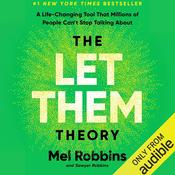201 episódios
Making underwater forestry scalable and sustainable, with Andrew Morgan of Hydrowood
10/12/2025 | 47minToday's episode is a tangible example of a company in the "natural capital" space. While not traditional agtech, the Hydrowood journey hits familiar themes: building a business within nature's constraints, managing capital intensity, and the frustrating search for the right investors.
Andrew Morgan watched the Pieman River in Tasmania dam in the 1970s. In 1986, Lake Pieman flooded, submerging centuries-old forests. Many years later, he and co-founder David Wise spotted trees protruding from the dark water- large quantities of native species like Huon Pine, Tasmanian Myrtle, and Sassafras.
The timber was salvageable, but they needed underwater logging technology that wouldn't disturb the lake's ecosystem. This led to the founding of Hydrowood. Today, the business has attracted millions in investment and high-end brand partnerships, but the journey has been far from easy.
In this episode, guest host Adam Taylor, Insights Lead at Tenacious, and Andrew Morgan discuss:
Why the Hydrowood narrative captivates investors and media
Trading off custom versus standard machinery to lower financial risk
Pivoting to crowdfunding when traditional investment proved difficult
The future of sustainable and ethical forestry
Andrew is also the Managing Director of SFM, an asset manager for large-scale plantation estates and carbon project developer.
Useful Links:
The economics of valuing natural capital, with Ken Henry
Hydrowood featured in first global flagship store by R.M Williams
Australian Carbon Credit Unit Scheme | Clean Energy Regulator
OnMarket crowd-sourced funding
Forest Economics Congress, MONA
For more information and resources, visit our website.
The information in this post is not investment advice or a recommendation to invest. It is general information only and does not take into account your investment objectives, financial situation or needs. Before making an investment decision you should seek financial advice from a professional financial adviser. Whilst we believe the information is correct, we provide no warranty of accuracy, reliability or completeness.Have we hit the tipping point for autonomy in ag? With Shane Thomas and Matthew Pryor
26/11/2025 | 32minOver the past few years, the conversation about autonomy in agtech has moved from “but, does it work?” to “how can I get started?” This is a significant shift, indicative of autonomous machinery becoming a fully commercial category in agriculture.
In this episode, Matthew Pryor, Founding Partner at Tenacious Ventures, discusses his recent observations at the Gatton Agtech Showcase, in QLD, Australia, highlighting the move towards production-ready autonomous machinery. He discusses how structure is now emerging in the Australian agtech autonomy market, including in sales and distribution, with a mix of companies from established equipment dealers to venture backed scale-ups. He predicts growth in this market to only compound in the coming years.
Matthew and Sarah are joined by Shane Thomas, founder of Upstream Ag Insights, to also dive into recent agtech news and market trends.
They discuss:
The role of traditional dealership networks in an autonomous future
The potential misuse of the term ‘autonomous’
Regional variations in market dynamics around autonomy between Australia, the US, and Canada
The forces reshaping crop protection, including the rise of non-chemical solutions such as laser weeding and electric weed control
Useful Links:
Carbon Robotics raises $20m to build ‘another AI robot’?, AgFunder News
Monarch Tractor sued over tractors that were 'unable to operate autonomously', TechCrunch
Is Farmers’ Traditional Loyalty to Ag Equipment Colors Fading?, Farm Equipment
The Four Forces reshaping the crop protection industry and what comes next, Upstream Ag Insights
The Generics Revolution and the New Economic Geography of the Global Pesticide Industry, Journal of Agrarian Change
The Race to Define the Future of Ag Retail with Shane Thomas of Upstream Ag Insights, Agtech So What?
Getting into the Weeds: AI, Computer Vision, and the Future of Non-Chemical Weeding, Agtech So What?
Investment Notes: Azaneo, Tenacious Ventures
Disrupting the AgTech Ecosystem with Ron Adner, Agtech So What?
Vavilovian Mimicry, Bionity
For more information and resources, visit our website.
The information in this post is not investment advice or a recommendation to invest. It is general information only and does not take into account your investment objectives, financial situation or needs. Before making an investment decision you should seek financial advice from a professional financial adviser. Whilst we believe the information is correct, we provide no warranty of accuracy, reliability or completeness.
[0007:25] The role of dealerships in an autonomous future
[00:17:45] The forces reshaping crop protection
[00:25:20] Weeds adapting to non-chemical crop solutions- In the race to decarbonize agriculture, the spotlight often falls on carbon sequestration, genetics, and alternative proteins. But have we overlooked something that’s right in front of us? Electricity.
Mike Casey is a self-described “tech bro turned farmer” from Cromwell, New Zealand. Mike runs what’s believed to be the world’s first fully electric farm, made up of 21 electric machines, from irrigation systems and frost-fighting fans, to electric tractors and forklifts. His business is aptly named Electric Cherries, where power is generated from renewable sources on-farm. Mike says this has enabled him to save tens of thousands on energy costs every year, while also developing a business model for farming that’s both profitable and low-carbon.
Sarah and Mike discuss:
How an old diesel pump kicked off Mike’s electrification crusade
The economics of going electric on a farm (and is it only possible in New Zealand or on a cherry farm?)
What electric machinery changes (and doesn’t) about running a farm business
Why farmers stand to benefit from the shift away from centralized, fossil fuel power generation to decentralized renewable energy
Mike is also the CEO of Rewiring Aotearoa, a movement helping Kiwis switch from fossil fuels to renewable energy. His mission is simple: make electric technology an economic no-brainer for every farmer and household.
Useful Links:
On-Farm Electrification isn't an equipment change, it's a systems change, Agtech So… What?
Electric Cherries, Evoke Ag presentation by Mike Casey
Electric Farms Report, Rewiring Aotearoa
The future of (decentralized) fertilizer, with Jupiter Ionics (Tenacious portfolio company)
For more information and resources, visit our website.
The information in this post is not investment advice or a recommendation to invest. It is general information only and does not take into account your investment objectives, financial situation or needs. Before making an investment decision you should seek financial advice from a professional financial adviser. Whilst we believe the information is correct, we provide no warranty of accuracy, reliability or completeness. - What happens when an agtech startup with market pull, a clear mission, and global momentum still doesn’t make it?
Nikki Davey is the founder of Grown Not Flown, which helped thousands of local flower growers reach customers who wanted sustainable blooms. Nikki’s app directly addressed the problem of ‘flower miles’. In Australia and the US, a store bought bouquet is likely to be made up of flowers that have been flown long distances, from places such as South America, Asia, or Africa.
Nikki won the National AgriFutures Rural Women's Award in 2023 for Grown Not Flown, which helped to further establish the business. But, as the Grown Not Flown app was taken up across multiple countries, the challenge of scaling became harder for the startup and ultimately it was wound up.
In this candid, episode Sarah and Nikki discuss:
· Misconceptions about the hardest part of founding an agtech startup.
· The realities of small founding teams, finding investors, and scaling with limited resources.
· The emotional toll of what happens when your identity is tied to your startup.
· Why the end of a business does not mean the end of the mission
Useful Resources:
Victorian rural tech entrepreneur Nikki Davey named the 2023 AgriFutures Rural Women's Award National Winner
Are agtech startups just digital agribusinesses? Mark Kahn, Omnivore, Agtech So What?
Sustainable Floristry Network
For more information and resources, visit our website.
The information in this post is not investment advice or a recommendation to invest. It is general information only and does not take into account your investment objectives, financial situation or needs. Before making an investment decision you should seek financial advice from a professional financial adviser. Whilst we believe the information is correct, we provide no warranty of accuracy, reliability or completeness. Agtech trends: bundling, unbundling, LLMs and more with Shane Thomas and Matthew Pryor
15/10/2025 | 32min‘Bundling’ is a well-known business strategy, especially in tech, where it’s not only used to increase sales and move slow-selling products, but also to tie customers into an ecosystem (such as Apple or Microsoft).
So what about all the unbundling that’s been happening in agtech recently? While historically we’ve seen seed companies offer bundled options, such as seeds, crop management, and data products, there is now a trend towards ‘unbundling’ in agriculture. This is exemplified by Corteva’s recent decision to unbundle its seed and crop protection divisions into two publicly traded companies. Similarly, Farmers Business Network(FBN) has also spun off its global crop solutions business from its digital marketplace.
In this episode, Sarah Nolet unpacks the bundling/unbundling dilemma in agtech with Shane Thomas, founder of Upstream Ag Insights and Matthew Pryor, Founding Partner at Tenacious Ventures. They discuss:
The strategic impacts of unbundling for companies such as FBN and Corteva, as well as the broader impacts on farmers and markets.
The market dynamics that encourage companies to bundle or unbundle.
How Large Language Models (LLMs) are being used in agtech, including Retrieval Augmented Generation (RAG) and other AI frameworks.
Shane Thomas’ new AskUpstream AI tool.
Recent acquisitions in agtech, such as the Growers Edge acquisition of FarmTest
Useful Links:
What Corteva’s Seed and Chemical Split Could Mean For Your Farm, Successful Farming
Growers Edge Acquires FarmTest, Growers Edge
Farmers Business Network the latest to spin off company, following Corteva, Kraft Heinz, AgFunderNews
DTN acquires Grain Discovery, DTN
AlphaEarth, Google DeepMind
Kraft Heinz to split a decade after merger in a bid to revive growth, The Guardian
For more information and resources, visit our website.
The information in this post is not investment advice or a recommendation to invest. It is general information only and does not take into account your investment objectives, financial situation or needs. Before making an investment decision you should seek financial advice from a professional financial adviser. Whilst we believe the information is correct, we provide no warranty of accuracy, reliability or completeness.
Mais podcasts de Arte
Podcasts em tendência em Arte
Sobre Agtech - So What?
We tell the stories of innovators at the intersection of agriculture and technology to answer the question: what really is agtech and why should you care?
Site de podcastOuça Agtech - So What?, VERSA 360 e muitos outros podcasts de todo o mundo com o aplicativo o radio.net

Obtenha o aplicativo gratuito radio.net
- Guardar rádios e podcasts favoritos
- Transmissão via Wi-Fi ou Bluetooth
- Carplay & Android Audo compatìvel
- E ainda mais funções
Obtenha o aplicativo gratuito radio.net
- Guardar rádios e podcasts favoritos
- Transmissão via Wi-Fi ou Bluetooth
- Carplay & Android Audo compatìvel
- E ainda mais funções


Agtech - So What?
Leia o código,
baixe o aplicativo,
ouça.
baixe o aplicativo,
ouça.





































